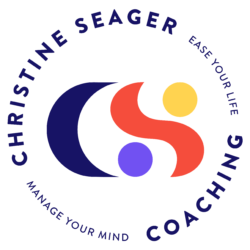(Especially for Managers)
I used to feel this pressure that if I didn’t get to inbox zero, I hadn’t really had a productive day.
It didn’t matter what else I did—if emails were left unanswered, it felt like I was behind.
Back when I was working as a manager, I’d stay late trying to catch up. After hours of managing my team, peer conversations, problem-solving, and on-the-fly decision-making… I was still measuring the day by whether or not I’d cleared my inbox.
It makes sense in a way. We’re trained to check things off, keep up, and not let things slip through the cracks.
But at some point, I realized: Inbox zero is a nearly impossible to obtain moving target.
And chasing it was costing me my energy—and my confidence.
Inbox Zero Is Like Laundry
Let’s be honest:
Your inbox is like your laundry basket.
You clear it, and it fills up again.
Not because you’re failing—but because you’re a human working with other humans.
In management especially, email is constant.
People need things. They’re sharing updates, asking questions, flagging issues.
There’s always more.
And yet… many of us have internalized the idea that inbox zero = success.
So if we don’t hit it? We feel behind, disorganized, or even (especially!) guilty.
It’s a Pattern I See Often
Someone spends the whole day catching up on emails—feeling busy, even overwhelmed—and yet walks away thinking, “What did I even do today?”
Can you relate?
It’s one of the sneakiest thought patterns I coach people on:
You worked hard all day. You were on your feet, using your brain, solving problems.
But if the inbox isn’t empty, your brain tells you: “You didn’t do enough.”
So Let’s Ask a Better Question
What if inbox zero isn’t the point?
What if the better question is:
- On a scale of 1–10, how productive do you feel today?
- Did you do your best, given what the day threw at you?
- What did you do that mattered—even if it wasn’t visible?
Try writing it down:
- Helped a coworker navigate a crisis
- Checked in on a struggling patient
- Made sure an important task didn’t slip through the cracks
- Had a thoughtful conversation with someone who really needed it
- Avoided snapping when you were short on time and energy
Those don’t show up in your inbox.
But they’re the reason you’re valuable (and good at your job).
You Get to Redefine a “Good” Day
When I finally stopped measuring success by how many emails I answered, things changed.
I could feel proud of my day without needing to finish every single task.
I could actually rest, because I wasn’t tying my worth to a number that was designed to reset tomorrow.
You deserve that, too.
You don’t have to earn rest, pride, or peace by clearing your inbox.
Especially in healthcare—where the real work happens off-screen.
Want Support Redefining What Productivity Means to You
If you’re tired of measuring your value by how many messages you cleared—and still walking away feeling behind, frazzled, or frustrated—I can help.
I coach nurses and healthcare professionals who want to feel more calm, clear, and in control—without quitting their jobs or adding more to their plate.
If you work at Logan Health,
You have access to confidential 1:1 coaching through your benefits.
Click here to schedule your free session.
Not a hospital employee?
Book a complimentary consultation here.
Let’s talk about what’s getting in your way—and what life could look like instead.
